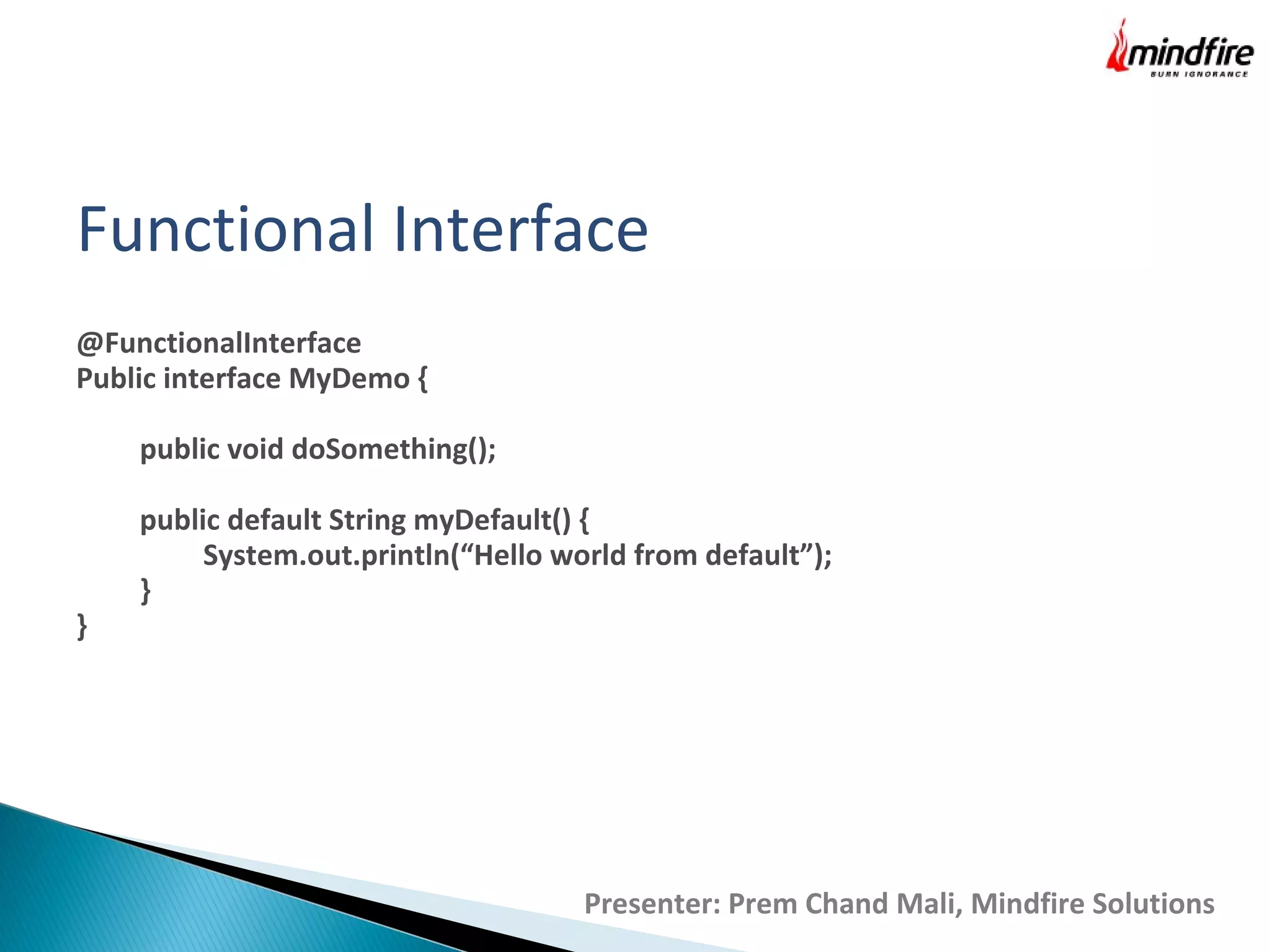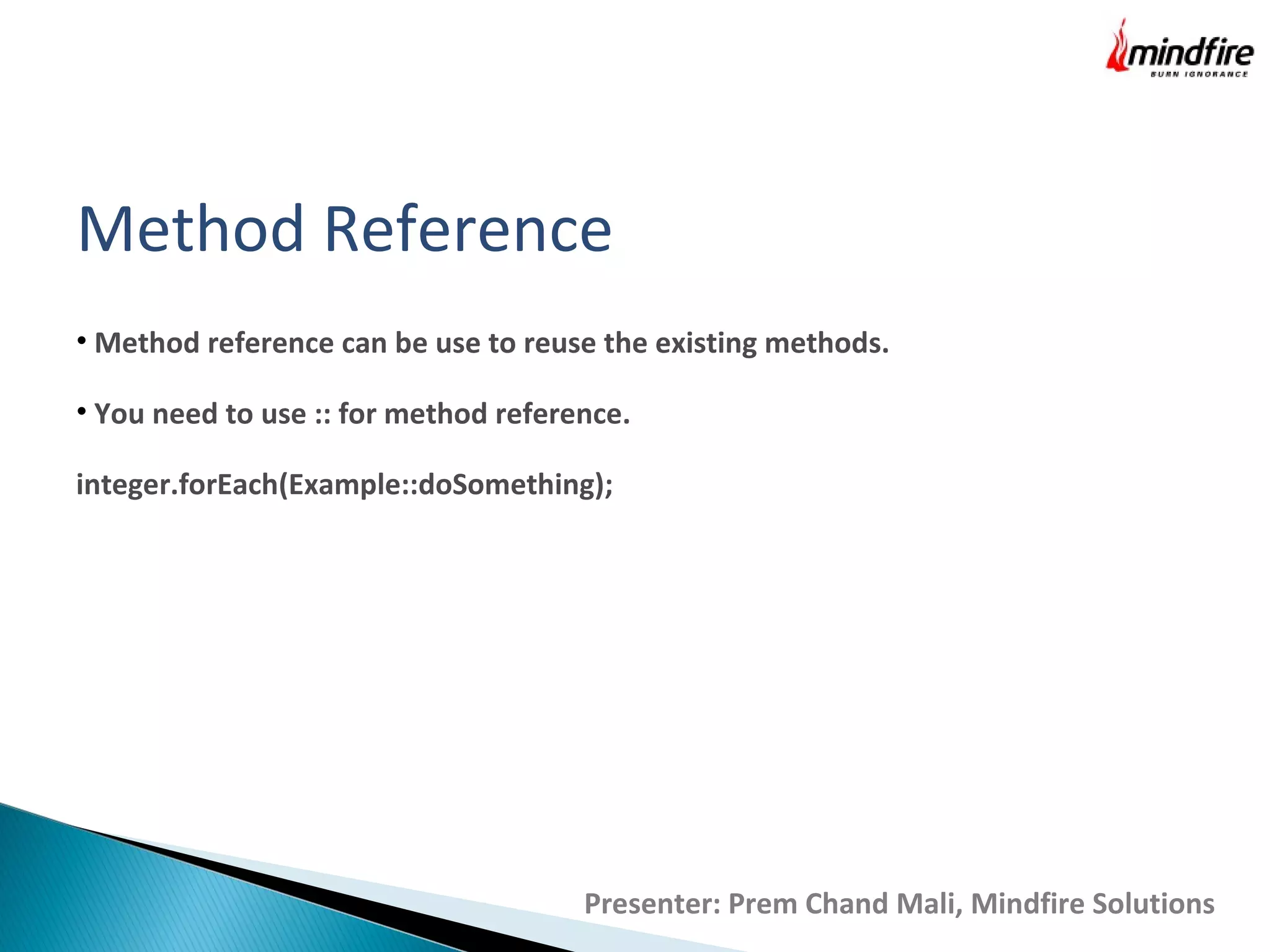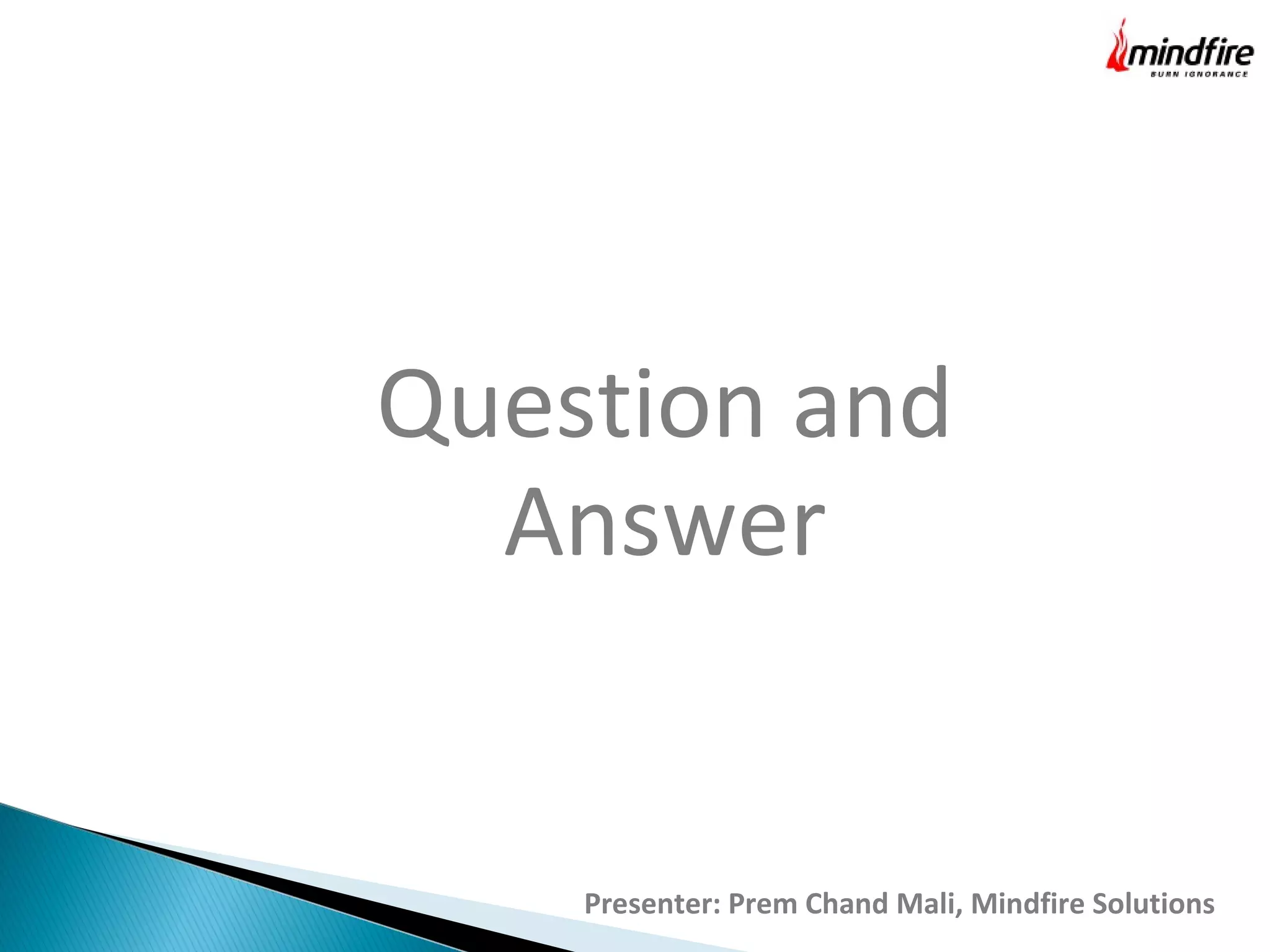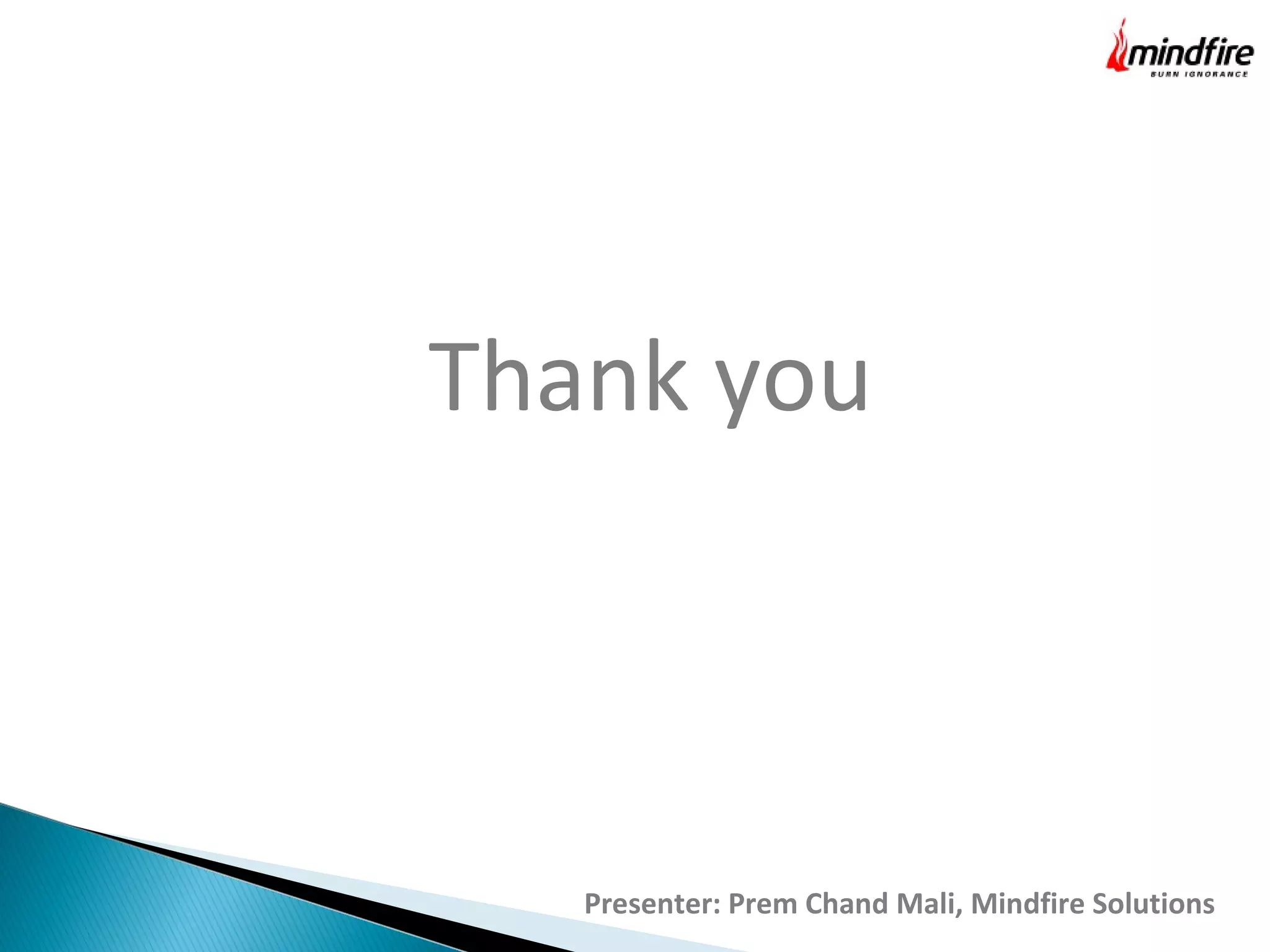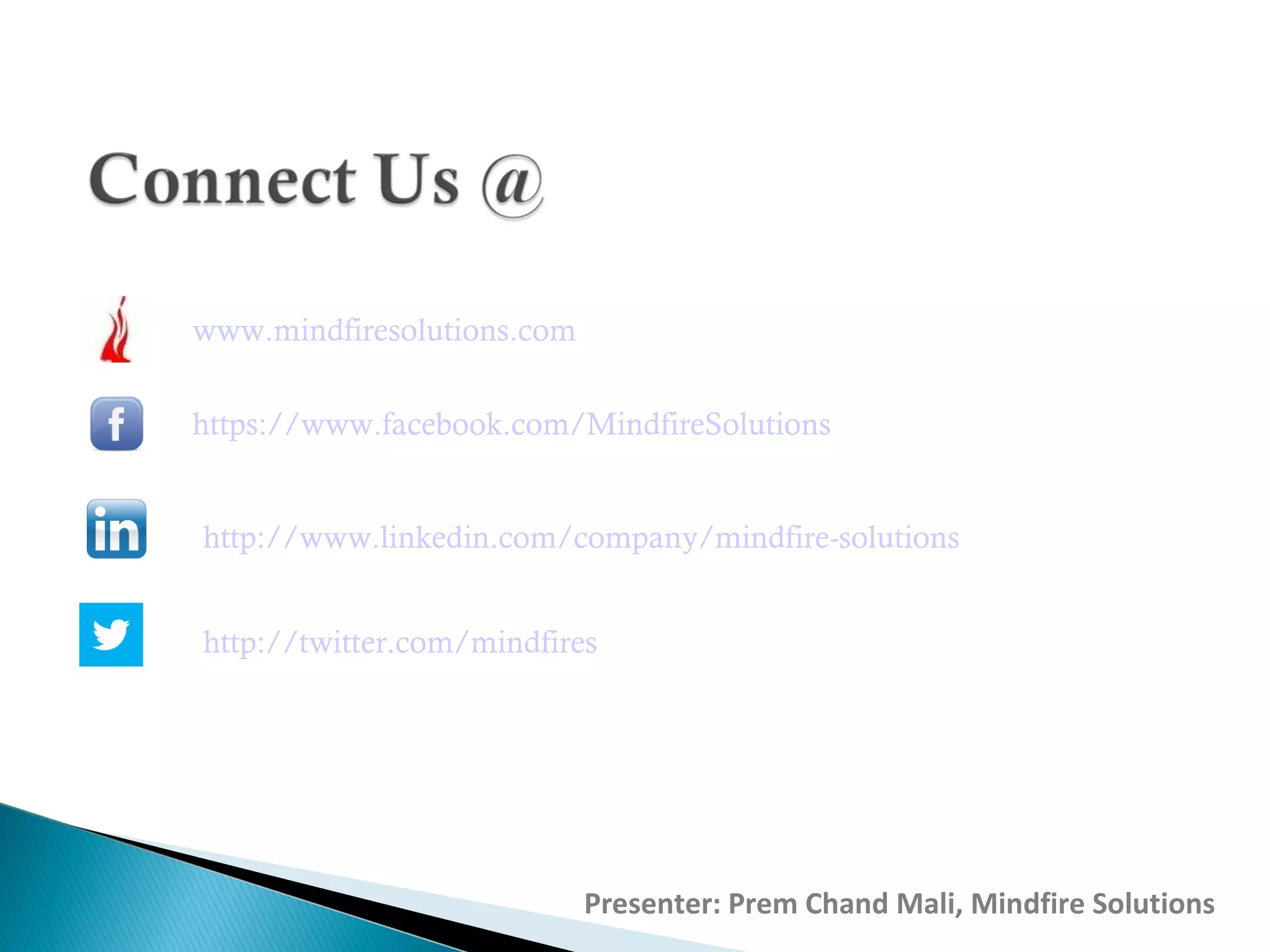The document is a presentation by Prem Chand Mali on Java 8's lambda expressions, discussing their syntax, functional interfaces, default methods, and variable capture. Lambda expressions, which are anonymous functions, allow for more efficient coding by enabling features such as method references and binary compatibility with older code versions. The presentation also includes a historical context of lambda calculus and its significance in contemporary programming languages.
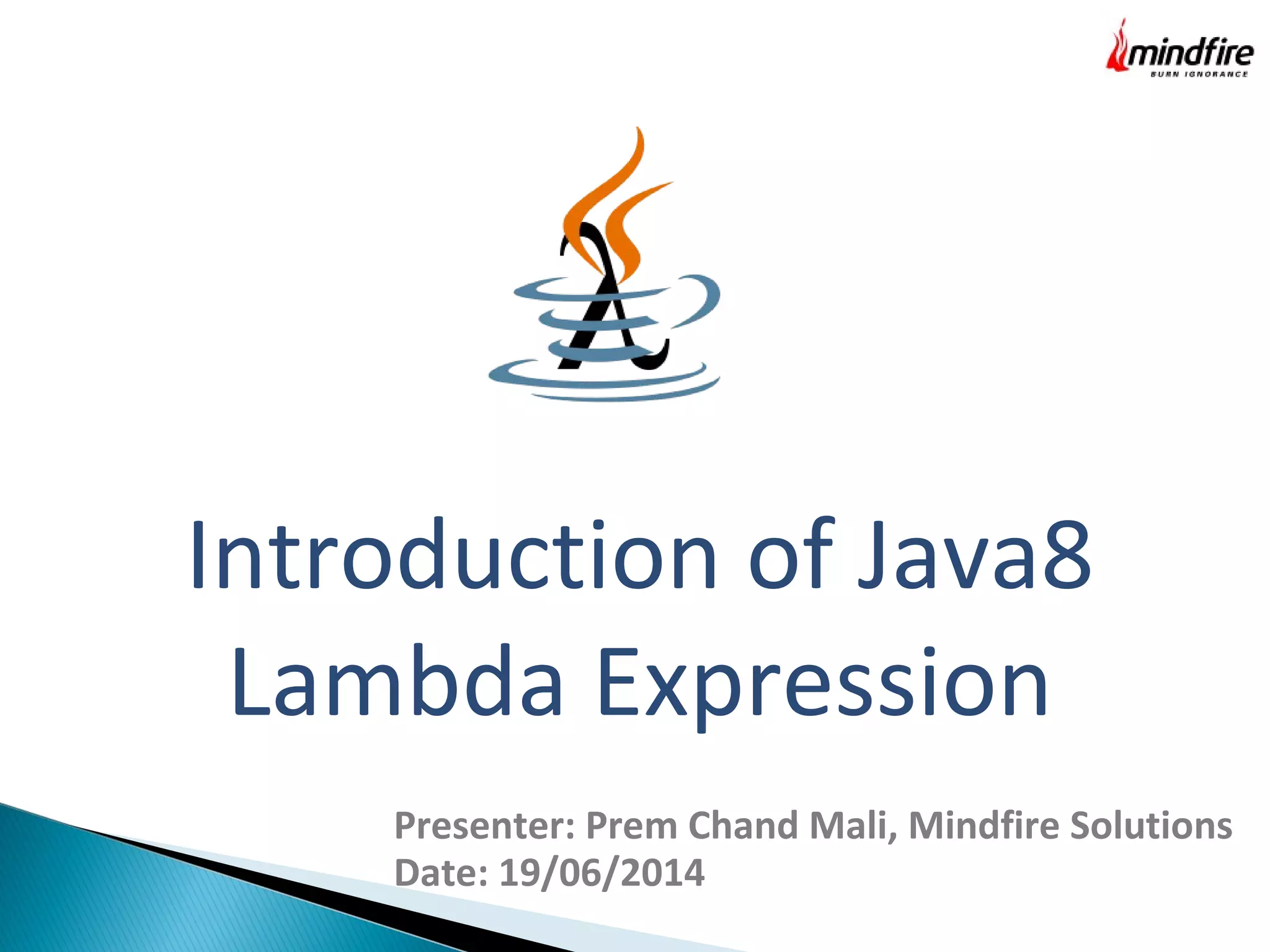
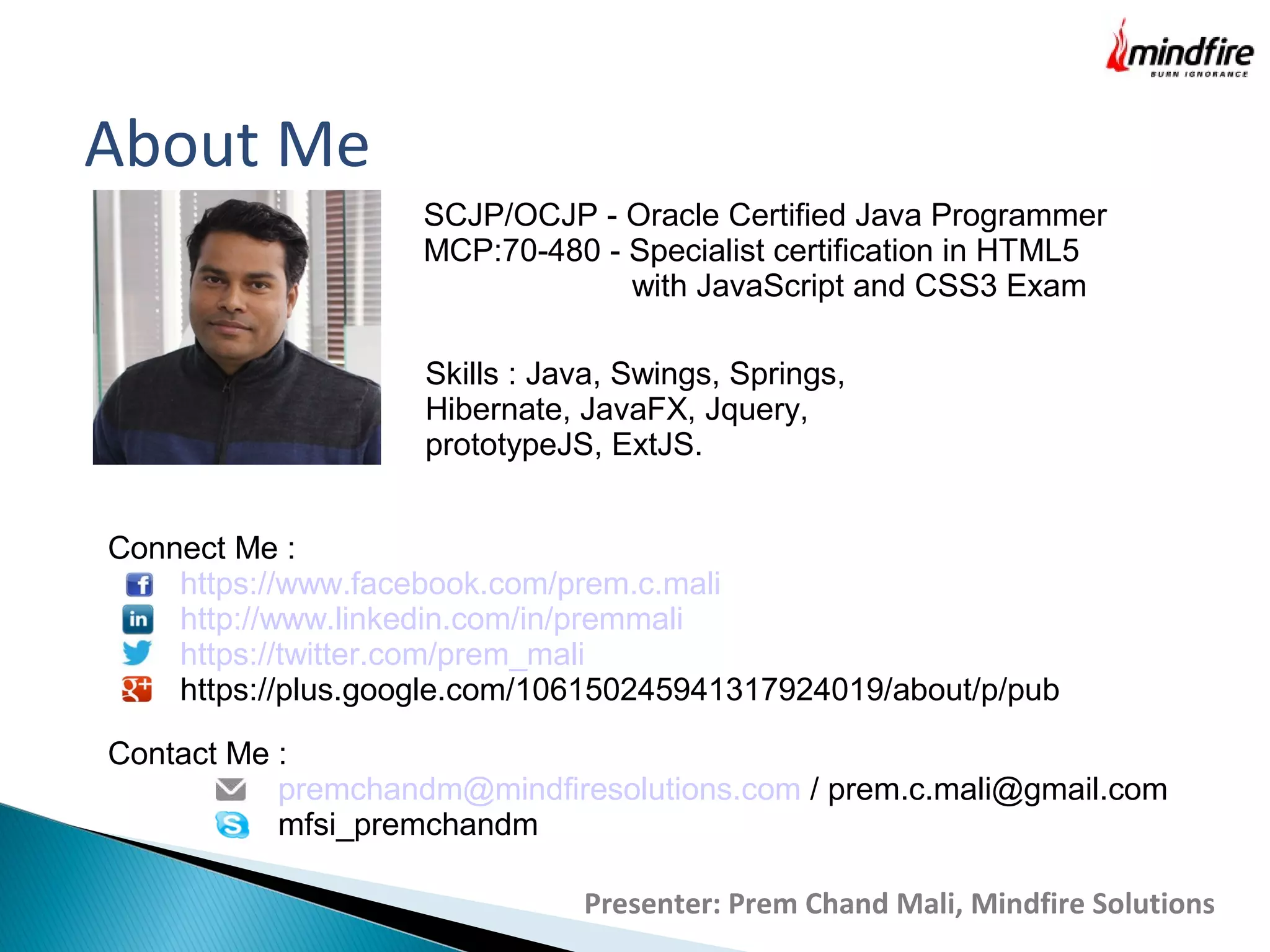
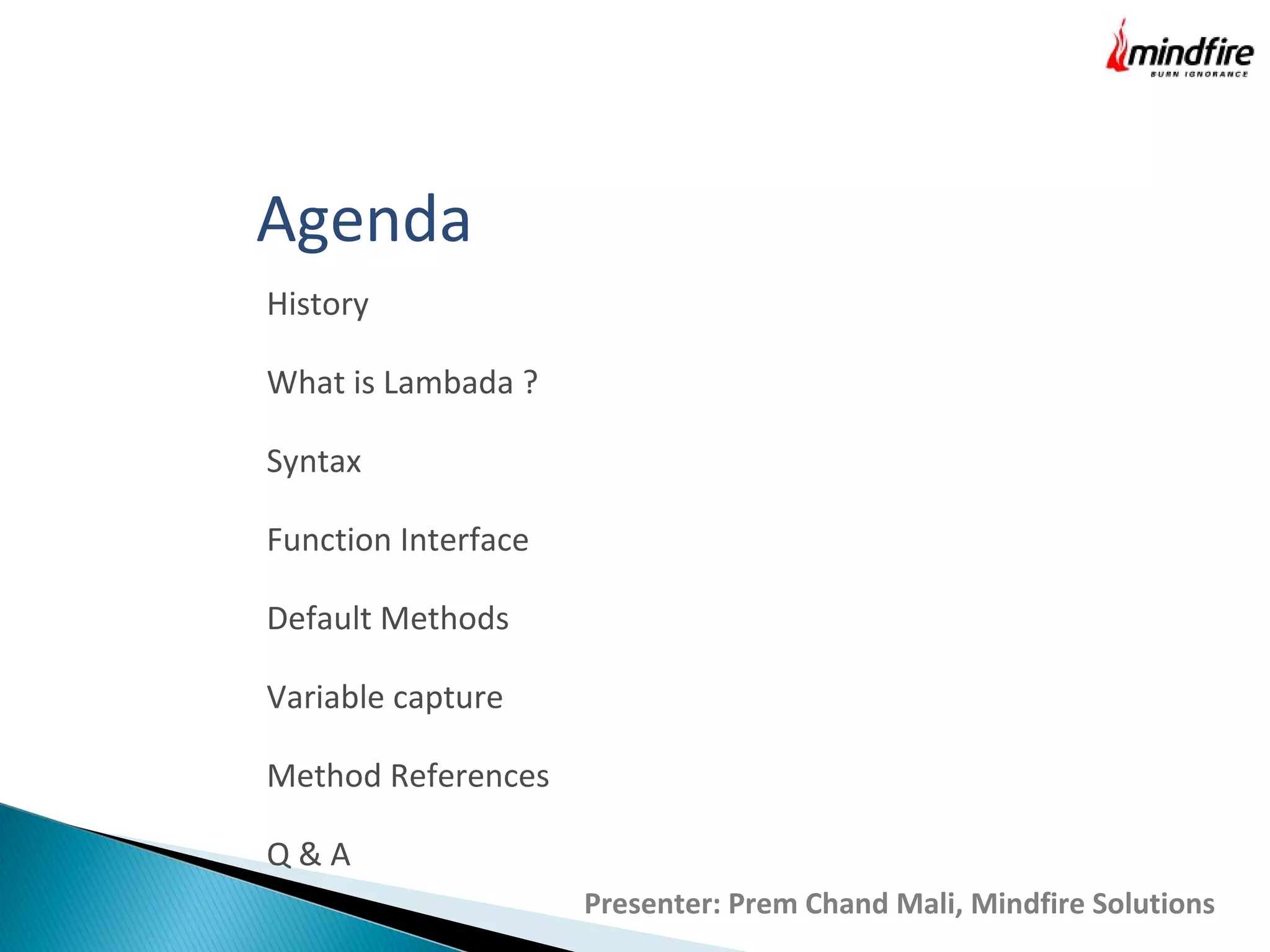
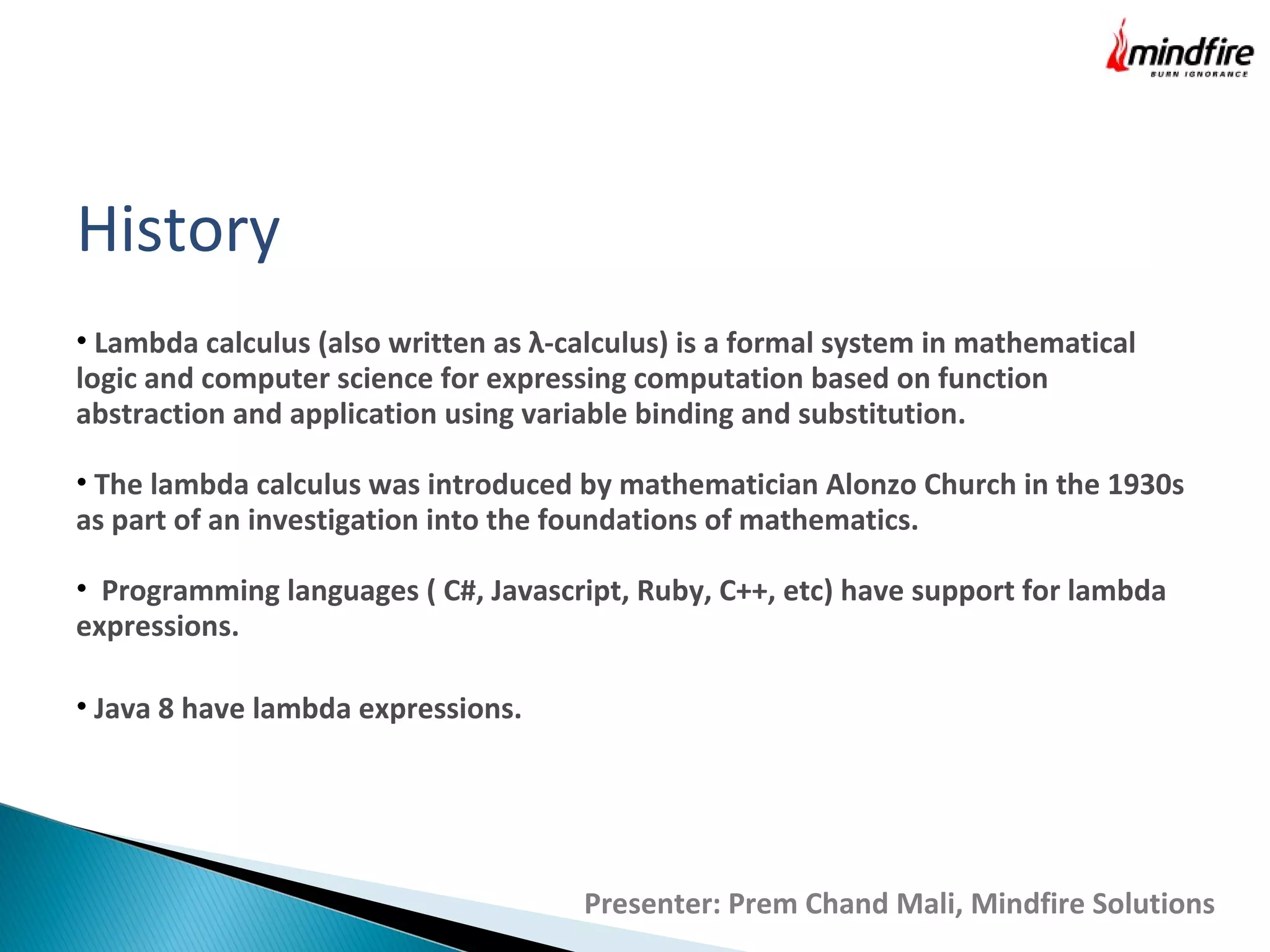
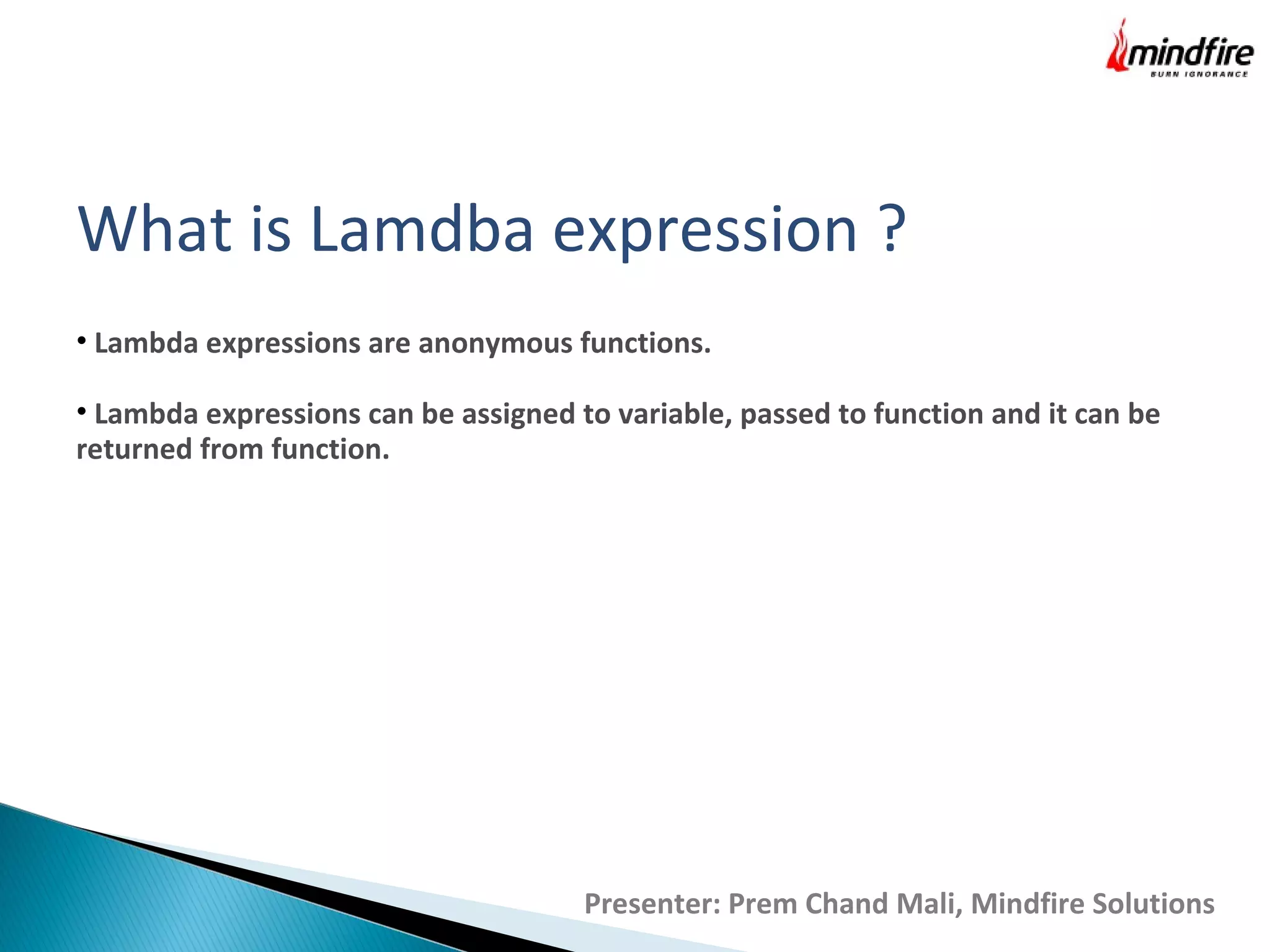
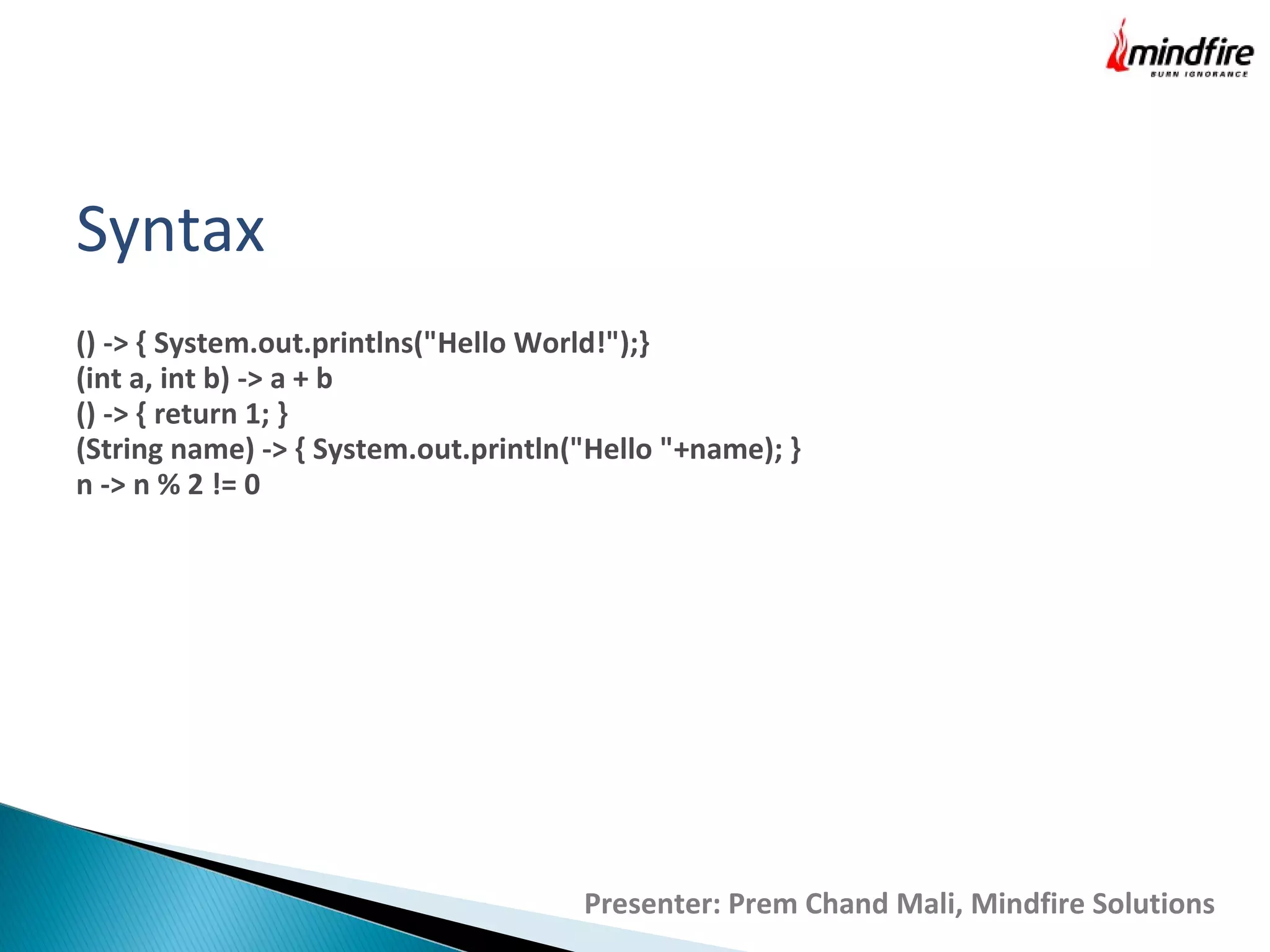
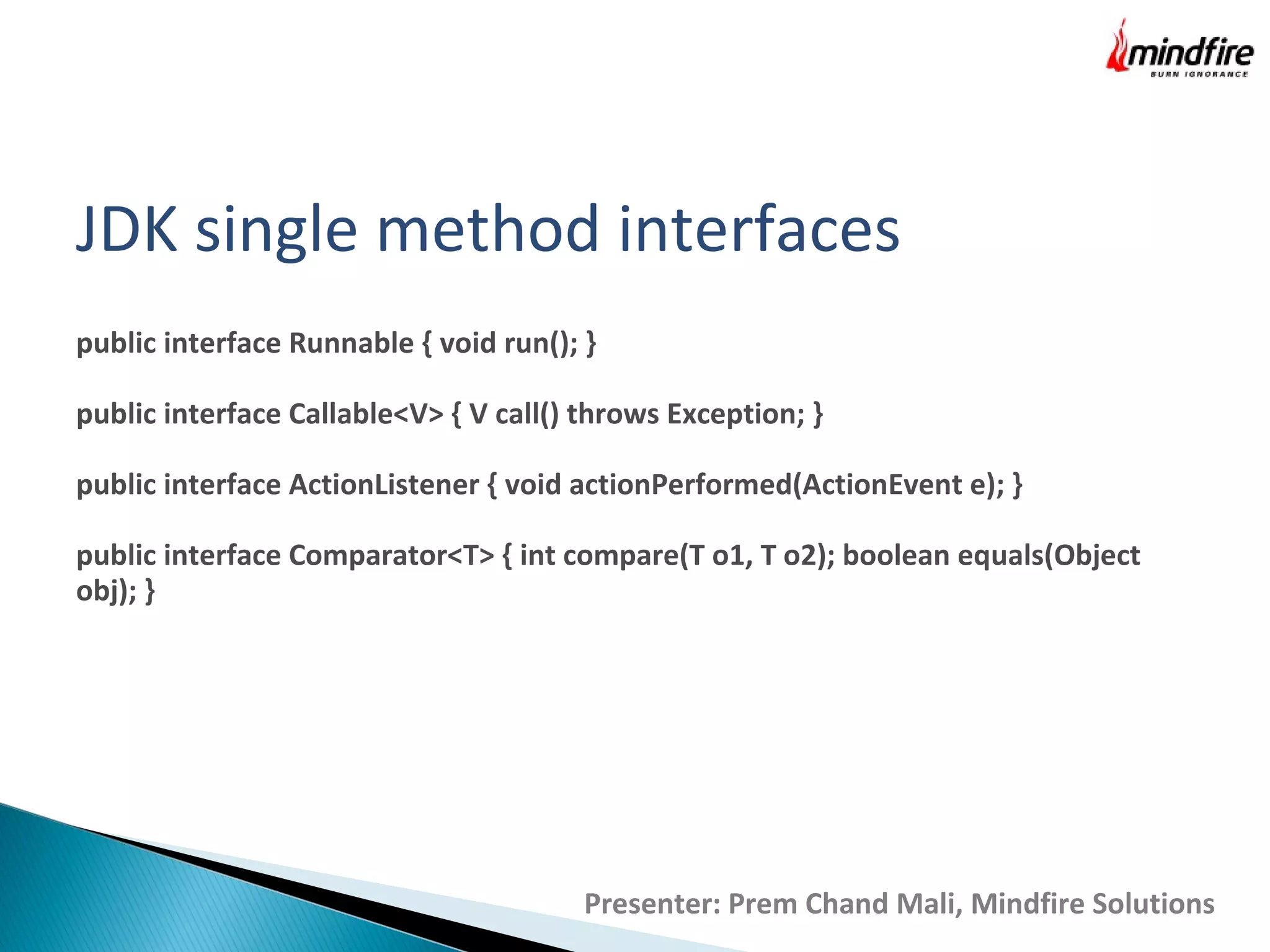
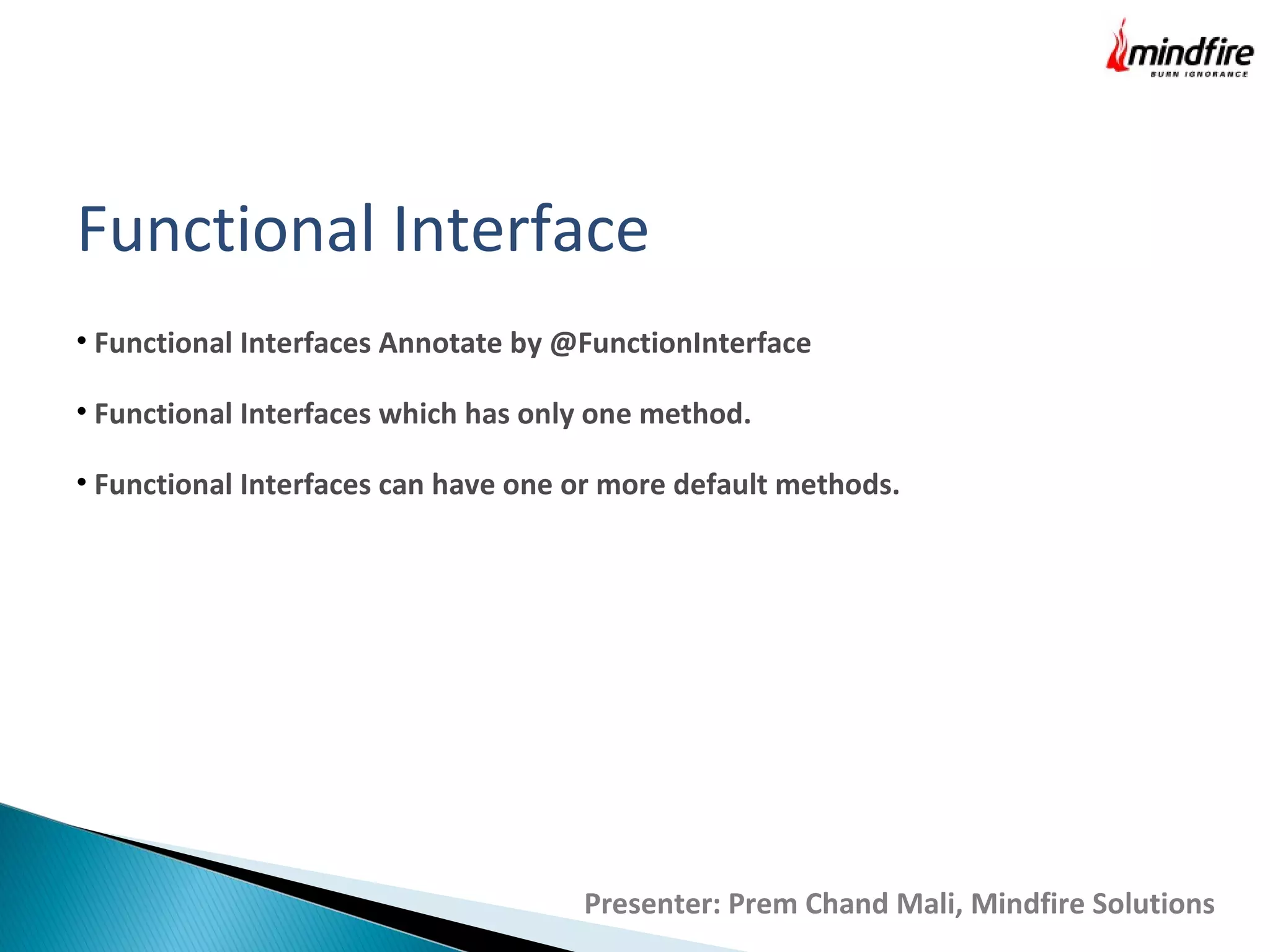
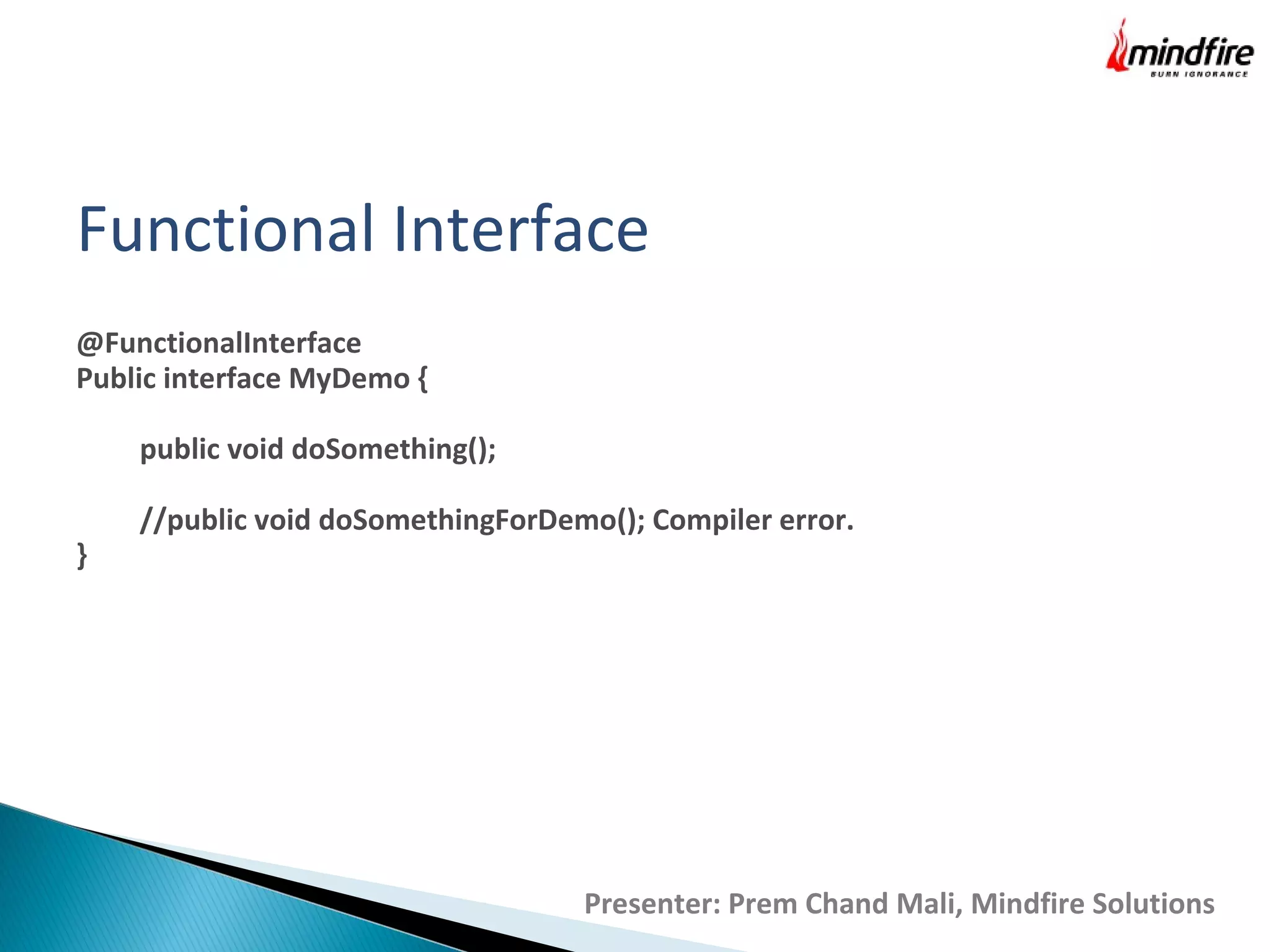
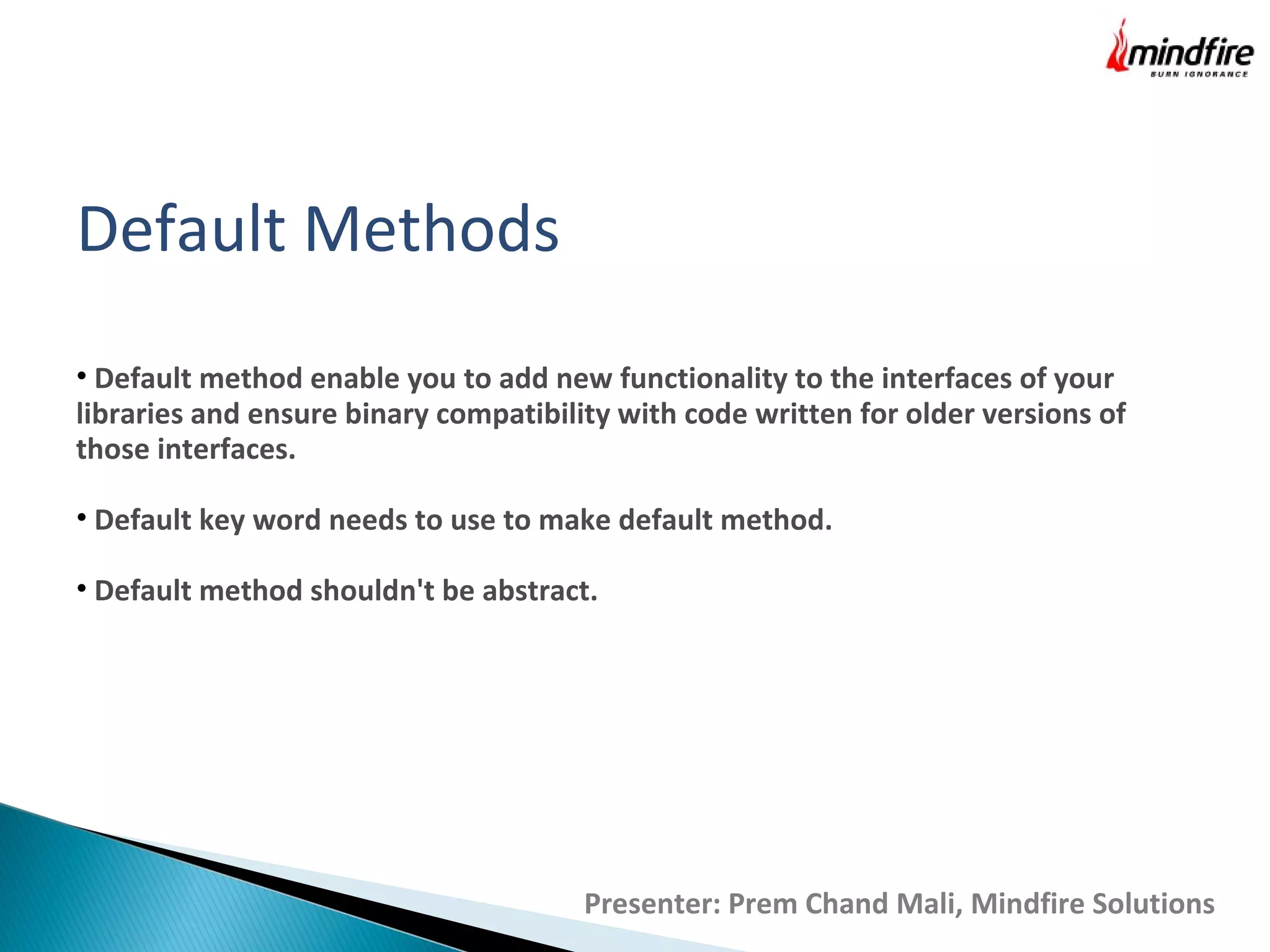
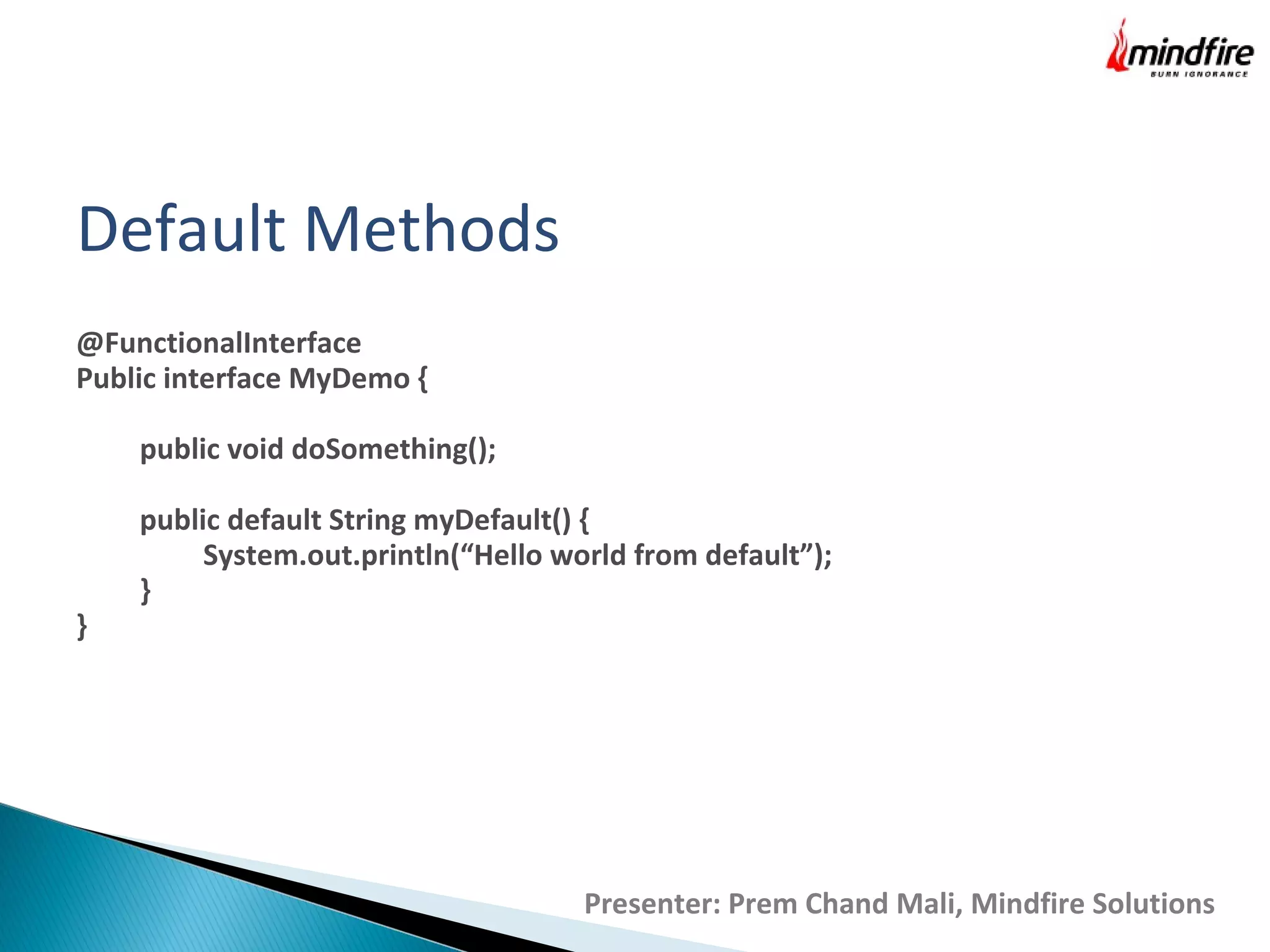
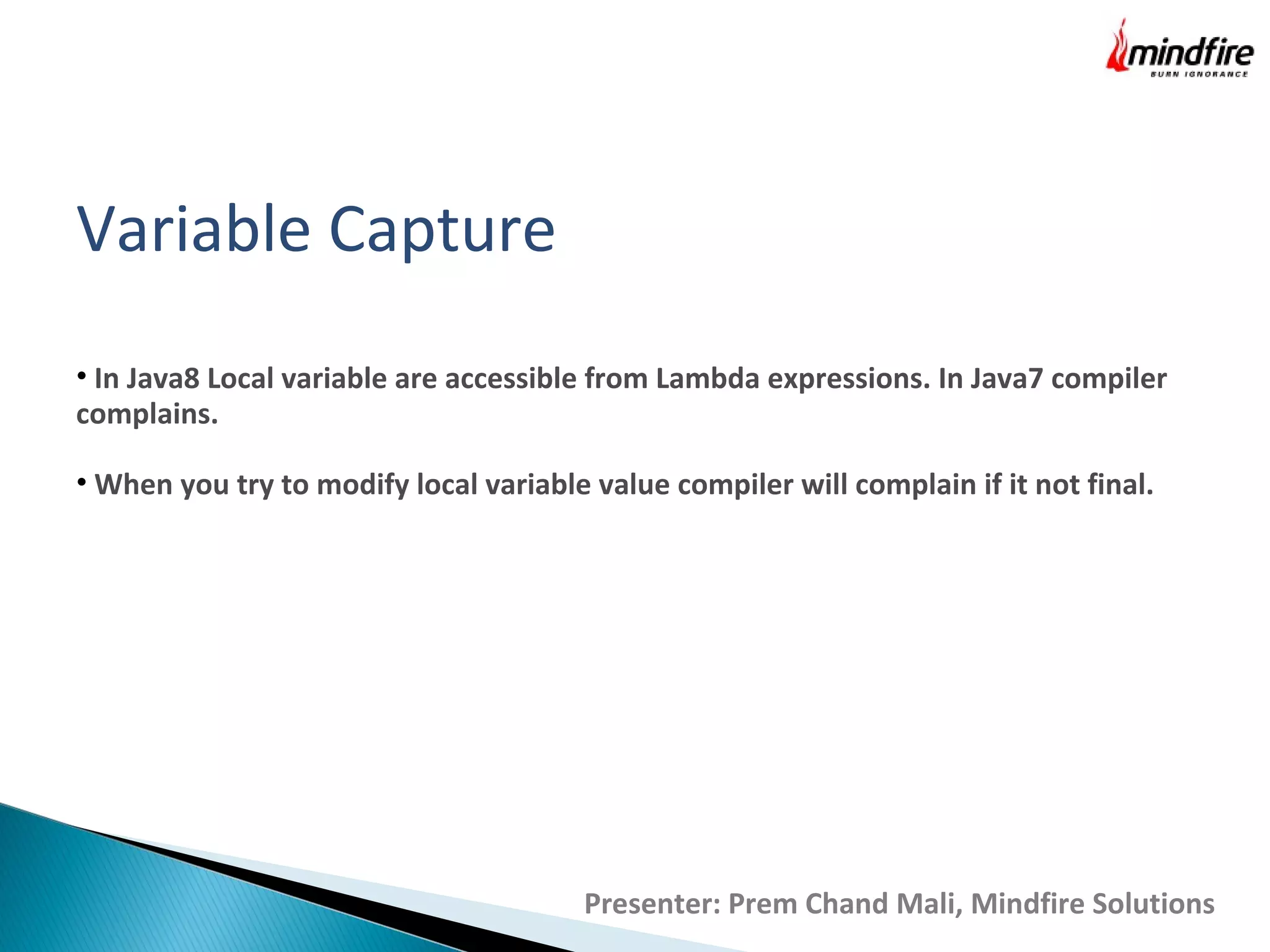
![Variable Capture
Public Class MyDemo {
public static void main(String[] args) {
String myName = “Runnable”;
Runnable r = () → System.out.println(“ Name : ” + myName);
//myName = “something”;
r.run();
}
}
Presenter: Prem Chand Mali, Mindfire Solutions](https://image.slidesharecdn.com/java8-lambada-141009050323-conversion-gate01/75/Java8-Lambda-and-Streams-13-2048.jpg)
